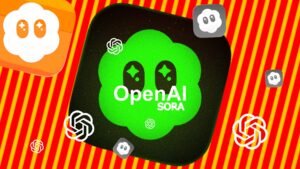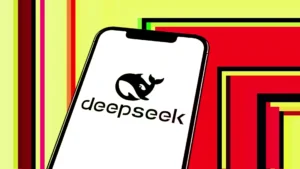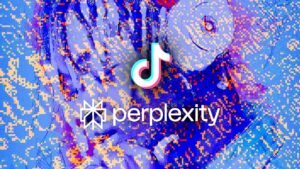
The music industry, always on the lookout for the next big technological wave, finds itself at the forefront once again, this time with the advent of artificial intelligence (AI). As AI capabilities continue to evolve at breakneck speed, we, as an industry, have a unique opportunity to explore how we can harness its power for the greater good.
Lessons from the Past: Embracing AI in 2023
Let’s face it, when disruptive technologies first emerged 23 years ago, the music sector tried in vain to force the technological genie back into the bottle, resulting in a graveyard of missed innovations. However, in 2023, the landscape looks quite different. Major labels are actively engaging with AI companies, libraries are striking deals to incorporate AI training on their catalogs for future revenue sharing, and artists are embracing AI tools for collaborative co-creation with their fans. Of course, there are also some lines being drawn in the sand to protect the distinctive sounds and identities of high-profile artists.
Rise of AI and the Music Business
Whenever technology crashes into the music business, we must evaluate and determine what works (or doesn’t work just yet) for our industry. Given that the commercial music sector revolves around monetizing and protecting intellectual property, it’s no surprise that major labels, publishers, and industry trade bodies are taking a firm stance on the value of human artistry. However, the emergence of AI presents a complex web of perspectives and stakes within our industry, spanning from independent artists to superstars. Navigating this complexity will be both exciting and confusing, but breaking things down can make it easier to understand.
To simplify the discussion, let’s divide AI for Music into three segments: the Green Zone, where AI tools are likely to be enabling; the Red Zone, which poses potential legal or controversial issues; and the Yellow Zone, brimming with possibilities. While the first two zones have relatively clear boundaries, the Yellow Zone will evolve as AI companies and industry stakeholders continue their conversations and refine their product offerings.

The Green Zone: Enabling Tools for Music Creation
In the Green Zone, AI serves as an extension of the human creative process, enabling a new suite of creator tools. Songwriters can overcome writer’s block, systematize collaboration, and improve efficiency with AI tools for songwriting, rhyming, melody, and lyrics. AI-based plug-ins for digital audio workstations (DAWs), copyright-cleared sound libraries, and artist-style training tools enhance audio production, democratizing music creation even further.
Embracing Change: AI as a Creative Extension
Embracing AI as a legitimate, technical, and creative tool, artists have a history of accepting new technologies and creator tools, despite naysayers fearing their demise. Remember the drum machine? Many thought it would spell the end for drummers, but clearly, that wasn’t the case. Games and casual creators will have a blast using AI-generated, low-risk music for fun and creative expression. In essence, AI empowers a broad range of fully-sanctioned tools, extending the capabilities of individual creators and augmenting human creativity.
The Red Zone: Addressing IP Protection Challenges
Now, let’s delve into the Red Zone, where the music sector’s signature IP-protection battles come to the fore. We’re already witnessing the drawing of battle lines: AI applications that involve artist impersonation and deep artist fakes are being shut down, and unauthorized AI training using commercial recordings is on shaky ground. Sync departments are closely monitoring text-to-print output to prevent cheap soundalikes from slipping through. Legal experts are studying copyright laws worldwide to establish rules, boundaries, and frameworks that navigate the razor-thin line between innovation and protection.
Balancing Innovation and Protection
The music industry is also keeping a watchful eye on visual image litigation surrounding AI, as its outcomes will likely impact other creative mediums. Furthermore, there’s pressure to differentiate purely AI-generated sound recordings from those created by humans, though drawing a clear line may prove challenging with the emergence of a vibrant AI creator tools marketplace and subtle differences.
The Yellow Zone: AI’s Potential in the Music Industry
Now, let’s venture into the intriguing Yellow Zone, where AI holds potential for new revenue, fresh opportunities, and problem-solving. Could the industry find a new licensing model by collectively licensing all its music to AI companies for training purposes? Such a structure could revolutionize licensing for labels and publishers while enabling legal, approved uses and output. Imagine established artists facing vocal challenges benefitting from AI-trained voice companions or artists like Grimes exploring the boundaries of AI as a collaborator.
Remixes, Derivative Works, and Ownership
AI can even help efficiently create new versions of existing songs, compositions, remixes, and derivative works without the need for a traditional studio setup. However, this raises questions about ownership and participation in these versions. Where does the composition reside?

The Royalty-Free Market and AI’s Impact
The royalty-free market for background music, characterized by nondescript tunes, is ripe for AI innovation. This space is free from the complexities of fragmented rights across labels, publishers, and performance rights organizations (PROs), making it easy, claim-free, and royalty-free. AI-powered functional music designed to aid sleep, concentration, meditation, and relaxation could become more personalized, potentially serving as an alternative to medication.
Solving Music Rights Challenges with AI
Let’s not overlook the transformative potential of AI in solving music rights metadata challenges, matching sound recordings to publishing, and ensuring that rightful owners receive their due. These problems plague systems worldwide, involving over 100,000,000 sound recordings and more than 1 billion publishing shares. While these issues require aligned business incentives rather than just technological solutions, AI can prove to be a powerful tool in the rights management space, harnessing a vast number of unique machine-readable identifiers and data points across millions of shares and trillions of transactions.
Shaping a Different Response: Lessons Learned from the Past
When considering the Yellow Zone, it’s heartening to see a different response from the music industry compared to the early days when end users were sued, and CDs were equipped with malware. While we occasionally encounter self-proclaimed “post-copyright world” innovators, lessons have been learned, stakeholder dynamics are shifting, and more artists have gained the autonomy to shape their creative destiny by leveraging a diverse array of tools. The market for AI in music falls within the Green and Yellow Zones, and while consensus may not be reached on every use case, AI’s unstoppable momentum will undoubtedly provide distinct advantages to those who embrace it.
AI’s Unstoppable Momentum in the Music Industry
In conclusion, AI’s impact on the music business is a mixed bag of potential pitfalls and promising possibilities. By carefully navigating the Red Zone, while embracing the enabling capabilities of the Green Zone and the untapped opportunities in the Yellow Zone, the music industry can harness the true potential of AI for the benefit of artists, creators, and listeners alike.






